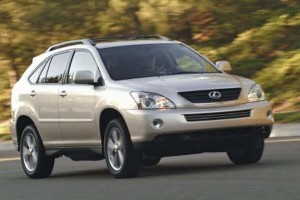In the latest development involving Toyota’s problems with so-called unintended acceleration, the maker has agreed to pay $29 million as part of a settlement with the attorneys-general in 29 states while also improving the way it handles future recalls.
The automaker will also set aside another $5 million to help reimburse owners of various Toyota Motor Co. products who were affected by those recalls to cover costs for rental cars, taxi rides and other replacement transportation.
Toyota has already paid a series of record fines levied by the National Highway Traffic Safety Administration as a result of its handling of recalls linked to a series of problems that could cause its vehicles to surge out of control. Since the first of those recalls – involving issues such as carpet entrapment and sticky accelerators – was launched in 2009, more than 10 million vehicles have been affected.
“Car buyers deserve the assurance that manufacturers will quickly and appropriately respond to known safety risks,” Arkansas Attorney General Dustin McDaniel said. “The terms of this settlement require that Toyota make changes to improve its responsiveness to safety issues, and that benefits consumers.”
Added Michigan Attorney General Bill Schuette, “This settlement ensures Toyota drivers can have confidence in the safety of the vehicles they drive.”
A key provision of the settlement is the creation of a new Toyota database that will allow owners to readily use the unique Vehicle Identification Number, or VIN, to see if they are subject to a recall.
As for any vehicle that might have been involved in a recall, Toyota will now have to fix it before one of its dealers can resell it on the used market. The maker must also clearly indicate to an owner why a vehicle is being requested to have repairs made.
Toyota was hammered by concerns about the safety of its vehicles when it ordered the first in a series of recalls related to unintended acceleration in October 2009, following up with a second recall in early 2010. The latter, the result of potentially sticky accelerator assemblies, also led the maker to temporarily idle its assembly lines and halt sales at its showrooms while it found and installed replacement parts.
But what came of particular concern, especially to consumer and automotive safety regulators, was the apparent delay by the maker in ordering those recalls – and ones that have followed. Last December, the NHTSA levied yet another record fine, this one for $17.3 million, against Toyota because of the delay in a recall of its popular Lexus RX crossovers because of potential carpet entrapment issues.
Barely a week later, Toyota announced it had reached a $1.1 billion settlement to resolve a series of lawsuits by owners who claimed they’d suffered losses in the value of their vehicles due to Toyota’s recall problems.
The Japanese giant has since begun trying to settle additional lawsuits involving claims of wrongful deaths and injuries linked to unintended acceleration issues. As TheDetroitBureau.com previously reported, it appears the maker is settling those cases in which it faces the greatest risk – but may still take to court less risky lawsuits.
“Resolving this (issue with the 29 states) is another step we are taking to turn the page on legacy issues from Toyota’s past recalls in a way that benefits our customers,” says Toyota General Counsel Christopher Reynolds.
The 29 states that accepted the settlement with Toyota are: Alabama, Arizona, Arkansas, Colorado, Connecticut, Florida, Illinois, Iowa, Kansas, Louisiana, Maryland, Minnesota, Mississippi, Nebraska, Nevada, New Jersey, New Mexico, North Carolina, Ohio, Oregon, Pennsylvania, Rhode Island, South Carolina, Tennessee, Virginia, Washington and Wisconsin. The territory of American Samoa also was involved in the settlement.


I think the fines of all car makers who fail to respond in a timely manner to safety issues is good. What amazes me however is when known safety defects are allowed to continue for over eight years when NHTSA and thousands of owners have documented the safety issues. Very strange. Maybe NHTSA employees should be held responsible for allowing these safety defects to go unresolved?
What sort of problems — and when — trigger an actual recall is a real interesting topic and one we should explore.
Paul E.